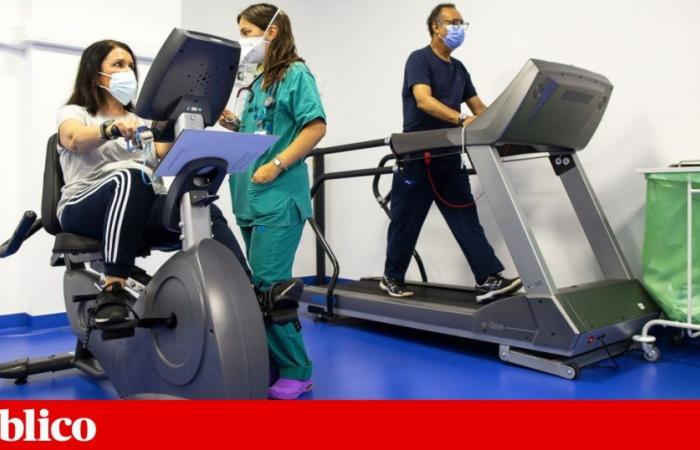National and foreign researchers will meet next week in Lisbon, in an unprecedented international conference that aims to raise awareness of the relationship between long Covid and diseases, such as chronic fatigue, and the need to find an answer for these patients.
Speaking to Lusa, António Vaz Carneiro, retired professor at the Faculty of Medicine of Lisbon and one of the organizers, explained that there have always been cases of people who, after an acute infection, presented extreme tiredness, inability to work, breathing difficulties and other symptoms, but remember that, with Covid-19, this number increased.
“We called it post-viral syndrome, but we didn’t care. And for many years people had chronic fatigue syndrome and myalgic encephalomyelitis that many doctors didn’t even believe in, because there is nothing in the blood, nor imaging, anything typical of these diseases”, he explained, adding: “these patients were abandoned”.
With the covid-19 pandemic, “a population of colossal dimensions” became infected. “The vast majority are fine, but others find their existence profoundly affected”, said the specialist, explaining: “they experience extreme tiredness, profoundly limiting, changes in consciousness, they are unable to concentrate, or sometimes read, and even heart complications” .
Also speaking to Lusa, rheumatologist Jaime Branco, professor at Nova Medical School, explains that he has patients with both physical and cognitive disabilities: “they present changes in memory, attention, concentration, which are very disabling”.
“Some patients often stay in bed for long hours during the day, which did not happen before they became ill”, says the specialist, highlighting that the high number of people infected during the pandemic increased the number of patients who for some time – “months or even years” – maintain these conditions.
According to the World Health Organization, one in 10 people infected during the pandemic maintain symptoms associated with long Covid, also called post-Covid-19, for some time.
“Some last months, others last years, but eventually fade away. Few patients remain with this”, adds Jaime Branco.
Highlighting the lack of studies in Portugal that indicate how many people infected during the pandemic ended up suffering from long Covid, António Vaz Carneiro says that, despite everything, the pandemic gave visibility to these conditions.
“We suddenly have a disease that is just like those that have always existed, but that no one believed in and now everyone believes in it,” he said.
Experts insist that there is no test that diagnoses this condition, explaining that the diagnosis is made “by excluding parts”, eliminating the possibility of other diseases with identical symptoms, and draw attention to the importance of investing in research.
“I would very much like Portugal to appear on the map, for us to also be part of multicenter clinical trials”, stated Vaz Carneiro, adding: “I hope this meeting is just the beginning of a broader plan”.
When asked whether it would make sense to develop a national program to respond to long Covid, he replied: “It’s too early to talk about that. We still do not have a clear enough detailed understanding of all aspects of this disease.”
“There are some biochemical changes, but it is very short, there are a lot of things similar to this that are not from Covid. And in terms of therapy, we also do not yet have a capable response. We are at a relatively early stage”, he stressed.
However, he warns: “If these patients do not recover, this will become a public health problem. So yes, I am convinced that, in a couple of years, it will probably be necessary to start thinking about resources exclusively for this disease”.
The international conference takes place on the 3rd and 4th of April, at the Luso-American Development Foundation (FLAD).
Designed recommendations
The experts who will meet at the first international conference intend to begin in Lisbon to outline a set of recommendations for this disease, for which there is still no diagnostic test.
“What we are going to try, the day after the conference, is to bring together an even smaller group with foreign colleagues who will be here in a small committee to see if we can do some guidelines about this situation”, rheumatologist Jaime Branco, one of the organizers of the international meeting, told Lusa news agency.
The specialist recalled that there is no specific test that diagnoses this condition, explaining that this happens by excluding parts: “It is an eminently clinical diagnosis, ruling out other situations or diseases that could cause the same symptoms”.
He highlighted that the relationship between infections and conditions such as chronic fatigue, mental confusion and difficulty concentrating has existed for a long time, but “has been overlooked”.
Jaime Branco recognized that the covid-19 pandemic, which infected millions of people, also ended up increasing the number of patients who remain with symptoms that are now included in the so-called post-covid-19 condition.






